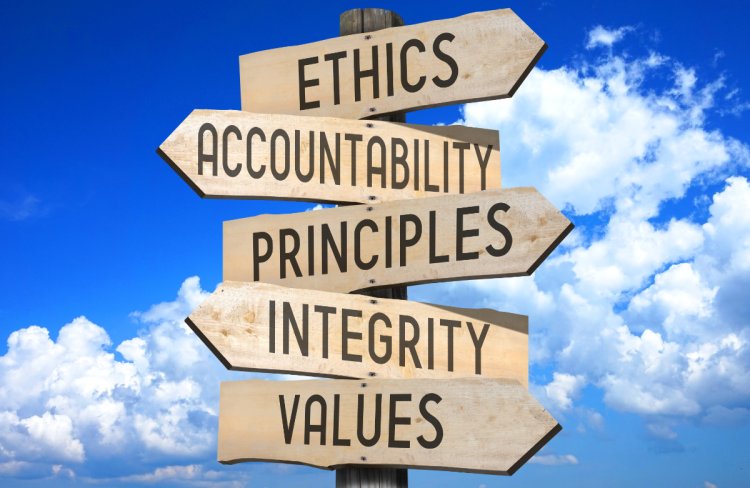Upholding Business Ethics: Fostering Trust and Integrity Within Your Company

In modern business, when competition abounds and markets pulse, trust is everything. Imagine a firm sailing through industry with quality and reliability guarantees. This yacht is a beacon of honesty in an ocean of distrust after many corporate titans have been deceived and scandalized. Welcome to the world where ethics isn't simply a moral guide but the key to long-term success. Trust and integrity are the foundation of a company's reputation, stakeholder relationships, and fortunes. In this blog we will explore corporate ethics and how companies may sustain and elevate trust and integrity, turning moral imperatives into commercial advantages.
Defining Business Ethics
Business ethics encompass the principles and values that guide the behavior of individuals and organizations in the business world. It involves adhering to moral standards, laws, and societal expectations while conducting business activities. Essentially, it's about doing the right thing, even when no one is watching.
The Importance of Trust and Integrity
Trust is the cornerstone of any successful business relationship. When customers, employees, and other stakeholders trust a company, they're more likely to engage with it positively, whether by purchasing products, investing, or advocating for its brand. Integrity, on the other hand, involves consistently adhering to ethical principles and being transparent in all dealings. Together, trust and integrity form the foundation of a company's reputation.
Building Trust Internally
Creating a culture of trust and integrity starts from within the organization. Leaders must set the tone by demonstrating ethical behavior in their actions and decisions. This involves fostering open communication, treating employees fairly, and holding everyone accountable for their conduct. Implementing clear policies and procedures, such as a code of ethics or conduct, helps employees understand the company's expectations regarding ethical behavior.
Promoting Transparency
Transparency is key to building trust with stakeholders. Companies should be open and honest in their communications, whether it's disclosing financial information, addressing mistakes, or sharing their values and goals. By being transparent, organizations demonstrate their commitment to accountability and ethical conduct, which enhances their credibility and reputation.
Ethical Decision-Making
Inevitably, businesses will face ethical dilemmas that require careful consideration and decision-making. Encouraging employees to uphold ethical standards in their actions and choices is essential. Providing ethics training and establishing channels for reporting ethical concerns empower employees to navigate difficult situations with integrity. Additionally, fostering a culture where ethical behavior is rewarded and recognized reinforces the importance of upholding values.
External Stakeholder Relationships
Beyond the confines of the organization, businesses must also cultivate trust and integrity in their interactions with external stakeholders, including customers, suppliers, and the community. This involves delivering on promises, honoring contracts, and engaging in fair and ethical business practices. By prioritizing the needs and interests of stakeholders, companies can build enduring relationships built on mutual trust and respect.
CONCLUSION
As we exit the turbulent seas of business and start the journey of ethical excellence, let us ask: In a world where trust is the currency of credibility and integrity is the foundation of prosperity, how will your business navigate the ever-changing tides of ethics to succeed?
What's Your Reaction?


















